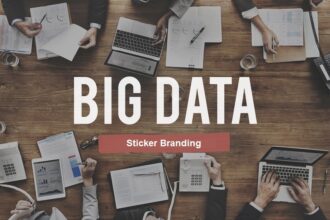One of the largest global issues in the healthcare industry is women’s health. Although some improvements have been made over the years, women’s health has yet to see a major breakthrough. However, with the growth of big data, that technological breakthrough could be around the corner as new developments play a large role in improving a number of areas of women’s health.
Breast Cancer
Breast cancer affects thousands of women every year, and despite vast efforts and progress, a cure has still not been found. Many medical centers have turned to big data to increase the effectiveness of cancer treatments. Researchers collect data from all types of women with breast cancer and then use algorithms and other technology to isolate patterns in the diagnoses, often relating to age or ethnicity. The data helps doctors know if certain women are at a higher risk for breast cancer.
Big data is also used to monitor the effectiveness of breast cancer treatments. Doctors from around the world can now pool their notes on various cancer treatments and use that information to decide what kind of treatments would be best for each individual patient using historical data. The information also shows overall trends in how effective certain treatment regimen are. The Susan G. Komen Foundation, a leader in the fight against breast cancer, hosted a series of think tanks around the country to bring together physicians and leaders to find the best ways to collect and analyze big data to get strong results that can lead to better breast cancer treatments and, ultimately, to a cure.
Other Cancers
Big data has already made a big impact in other cancer screening and diagnoses and is poised to continue its progress. New technology uses genetic testing to look for data patterns to predict if patients are prone to certain types of cancer. That information is fed into a database, and as more information is collected, the data and predictions get stronger and more reliable. The general idea is that early cancer detection can lead to more treatment options and a better chance of survival. Using genetic testing data can also find similarities between various types of cancer, especially those that affect women, and help women know if they may be at a higher risk.
Menstruation
Women around the world are always looking for ways to better track and control their menstrual information. Combining big data with mobile app technology allows women to track their own information while also collecting large amounts of data from app users to paint a bigger picture on complete menstrual health. The company Glow built an app that helps women track their cycle and also collects data for a women’s health database from users who opt into sharing their personal information. The information is largely focused on connecting menstruation information with fertility by showing different types of birth control and when women start their menstrual cycles. Another app, Clue, tracks menstrual information to help users know when they are the most fertile. Information is also collected to track the overall landscape of the menstrual and fertility space.
Privacy Issues
However, big data in the healthcare space isn’t a perfect system. There have been debates over the use of personal data for the public good and the need for privacy. As big data has grown, companies have been more successful at getting customers and patients to elect to share their information because it leads to a more powerful data analysis and can potentially save more lives. In most cases, patients and app users can decide how much information to share, and that information is then anonymized so it can’t be traced back to a specific user. Growing amounts of data often require a full IT transformation so that data can be tracked and analyzed at a faster pace.
Privacy issues can make it difficult to track big data in hospitals, meaning that currently most of the healthcare big data progress is being made by private firms and start-ups. However, as the benefits of big data are seen, especially when it comes to progress in women’s health, that may change.








